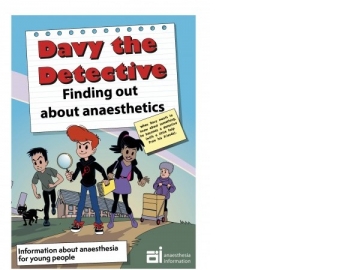Teen
- About
- Meet The Team
- Conditions
- Transition to Adult Congenital Cardiac Services
- Coming in to Hospital
- Surgery and Managing Your Discomfort
- Cardiac Catheter
- Ablation Procedure
- Pacemakers
- Looking after your oral health
- Lifestyle and Exercise Advice
- Periods, contraception and pregnancy
- Support
- Your Views
- Confidentiality and Consent
Surgery and Managing Your Discomfort
-
-
Investigations
Before you go for your operation you will have a series of investigations, including:
• Observations: Your blood pressure, pulse, respiration rate and temperature will be recorded. Also your height and weight.
• Echo: This is where your heart is scanned to provide information for the medical staff. This can take a bit of time, so chill out for a while.
• Chest X-Ray: Usually done in the x-ray department, to provide information about the size of your heart and the blood flow through the lungs.
• Blood Tests: OK, no one likes blood tests, but they are sometimes necessary. If you want, your nurse can put on some local anaesthetic cream to stop it hurting.
• ECG: This provides information on the electrical function of the heart.
Before you go to theatre
• Fasting: If you are going to have a general anaesthetic you will be “fasted” before you go. That means nothing to eat or drink. Your nurse will discuss times with you.
• Premed: Medication can be prescribed by the anaesthetist about an hour before you go, this can relax or even sedate you before you go.
Transfer to theatre
Someone from theatre will come with a trolley to collect you. Your nurse will come with you and stay with you until you are asleep. Our anaesthetists allow parents to stay with you until you are asleep.
-

-
After the operation is completed you will usually be taken to the intensive care unit. The unit is full of medical equipment and can appear a little overwhelming, but it is all essential to assist the nursing and medical staff to monitor your condition. Each patient in the unit has one nurse. That nurse is responsible for monitoring your condition. Also involved will be teams of surgical and medical personnel.
Managing Your Discomfort
Our aim is to promote comfort at all times. To do this effectively we need your help and cooperation. Before surgery your nurse will explain the pain assessment tool.
We would hope that by working with us you do not experience pain above a level 2.
After you have had your operation you will feel quite drowsy. This is normal, not only have you had an anaesthetic, you will also be given a strong pain relieving medicine called Morphine which also can make you feel drowsy. This will be given through a drip straight into your vein (don’t worry you will not be able to feel this!)
You may return to the ward with this medication.
As you start to get better and can manage to take tablets the drip will be removed. This is when you really need to tell the nurses if you have any pain and at what level. They can then decide which tablets to give you and when.
We do not use injections, as pain relief so do not worry! Medicines can be either tablets or medicine.
Types of painkillers
- Morphine – A strong analgesic (this is a medical word meaning painkiller). Morphine can be given via a drip or as a tablet or medicine. You cannot get addicted to Morphine in the short time you need it after heart surgery!
- Diclofenac — Is another analgesic. It is a moderate painkiller and can only be given as tablets or medicine.
- Dihydrocodeine — Is a moderate analgesic that is usually given as a tablet.
- Paracetamol — Is a mild analgesic and is also helpful at bringing temperatures down. Often after surgery paracetamol works well when it is used as well as other medication.
You will need a combination of some of these medications after heart surgery. Even tough guys need pain relief after heart surgery!
One of the best ways to get better is to start moving as soon as possible so you don’t get stiff! The physiotherapist and nurses will help you. As you start to move around you will feel better and you will soon be off your bed wandering around. As you recover you may be allowed off the ward to visit the shop or go outside to use your mobile!
When you go home you will probably not need any painkillers apart from mild analgesia such as paracetamol. The nurses on the ward will explain more about any aspect of pain relief after surgery so don’t worry. Talking to the nurses will help you understand more and will definitely help you worry less!
